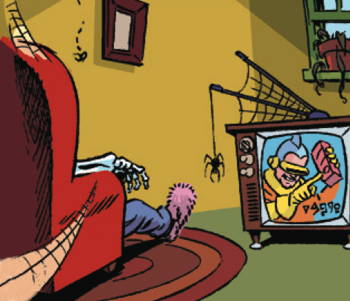June 2012
June 24, 2012
Duffy’s Pure Malt Whiskey
Back in the day, the only medicine a real man needed was pure malt whiskey running through his veins. From the Chicago Tribune, Jan 18, 1908.
Posted By: Alex - Sun Jun 24, 2012 -
Comments (3)
Category: Inebriation and Intoxicants, Medicine
June 23, 2012
Let Go
Please follow the singer's advice to abandon all hopes and preconceptions when viewing this video.
Posted By: Paul - Sat Jun 23, 2012 -
Comments (7)
Category: Music, Surrealism, Cartoons, Psychedelic
Your baby can swim
Train your kid to be the next Michael Phelps. Start teaching them to swim as soon as they're born. This book will show you how.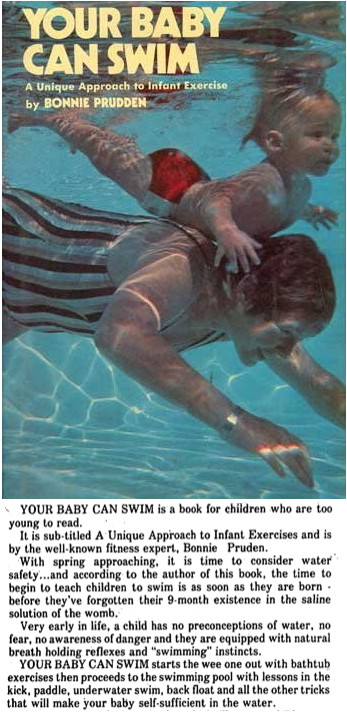
Posted By: Alex - Sat Jun 23, 2012 -
Comments (16)
Category: Exercise and Fitness, Sports, Swimming, Snorkeling, and Diving
June 22, 2012
Ichimonji, the donkey with dentures
Ichimonji was a donkey that served in the Japanese army during World War II, carrying munitions and wounded soldiers. After the war, he ended up at the Tokyo Zoo. But by 1963, in his old age, he had lost most of his teeth, which made it hard for him to eat. So Kenji Ishigami, a professor of Dentistry at Tokyo University, took pity on him and made him a set of artificial teeth out of a special alloy metal. He was reported to be the first donkey in the world ever to have dentures. Because of his new teeth, he became a star attraction at the zoo until his death in 1965.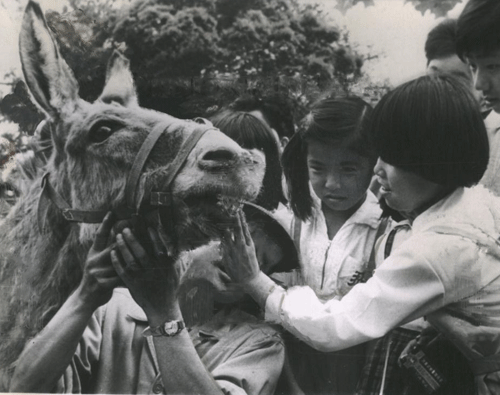


Posted By: Alex - Fri Jun 22, 2012 -
Comments (7)
Category: Animals
The Wellingborough Carnival
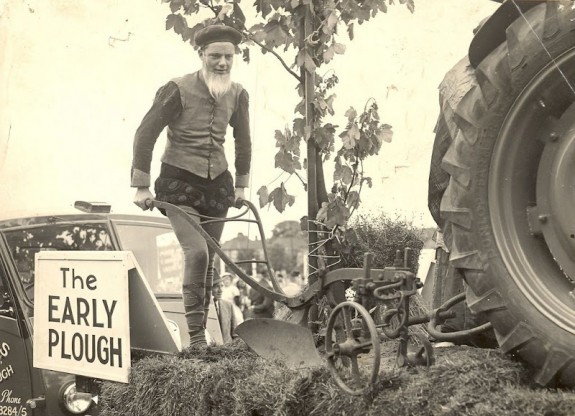
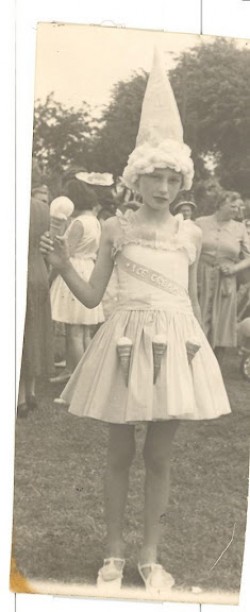
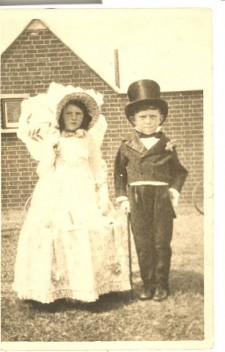
The town of Wellingborough, UK, has been holding a carnival for over 100 years. The old affairs certainly featured things that look weird to us today. Here's a photo album to peruse.
And the Wellingborough Carnival home page reveals this year's affair is on July 7th! Plenty of time to make your plans to attend!
Posted By: Paul - Fri Jun 22, 2012 -
Comments (4)
Category: Awards, Prizes, Competitions and Contests, Holidays, Parades and Festivals, Weird Theory, 1900s, 1910s, 1920s, 1930s, 1940s, 1950s, 1960s, 1970s, 1980s, 1990s, Europe
June 21, 2012
News of the Weird 2.0 (June 21, 2012)
News of the Weird 2.0(Almost) Daily, Since May 21, 2012
Underreported News, Hand-Picked and Lightly Seasoned by Chuck Shepherd
June 21, 2012
(datelines from June 8 or later) (links correct as of June 21)
★ ★ ★ ★!
Yr Editor is supposed to be on top of bizarrities like this so it's perplexing and humbling to realize that I'm among the last to know: In Las Vegas, there's a man with 100 lbs. of scrotal junk, and he's walking around (gingerly, but still walking) The Las Vegas Review-Journal had this story last year (and again now), and I missed it. Sorry for letting you down. Las Vegas Review-Journal [Not Safe For Stomachs]
People Different From Us
Miami Beach: (He might be innocent; to apply justice, check out his mugshot.) Ronald Rolfes, 31, took furtive clothes-changing photos at the Hooters Int'l Swimsuit Pageant. (Bonus: [Cop: Why'd you do it, Ron?] Ron: "Man to man [i.e., just between us gents], I did it because I've never had a girlfriend.") Miami Herald
"U-S-A! U-S-A! U-S-A!"
Washington, D.C.: The economy . . hell in a handbasket. Federal marketing subsidy for a company that sells glittery styling spray for dogs . . government cash! The Examiner (Washington, D.C.)
Liberty County, Tex.: This is a place where a sheriff can raid a home with a judge-signed search warrant looking for the evidence of the 25-30 children that had murdered and buried in the yard--when the only thing even vaguely resembling "evidence" for the search warrant came from a psychic. Courthouse News
More in extended >>
Posted By: Chuck - Thu Jun 21, 2012 -
Comments (11)
Category:
The Jazz Harpsichord of Stan Freeman
If Pugsley Addams had grown up to be a hepcat, this is the music he would have made.
More on the keyboard player here.
Posted By: Paul - Thu Jun 21, 2012 -
Comments (2)
Category: Eccentrics, Music, 1950s
The antique shop in the middle of a highway
People refusing to sell their homes to urban developers -- so they end up having highways and skyscrapers built around them -- is one of those things that happens often enough that it's 'no longer weird,' as Chuck would say. But here's an early example, from the mid-1960s.Tokyo hosted the Summer Olympics in 1964, and launched massive urban construction projects in anticipation of the games. Thousands of people were offered money to sell their homes to make way for new highways. Almost everyone took the offer of cash. But one elderly couple refused to move.

When the new highways were being projected, owners of houses on the chosen sites moved away more or less willingly, but this old couple decided that the indemnity offered was not enough for a home containing a lifetime of memories.
The old man boned up on his law and discovered that he could not be forcibly ejected, and that although he may be a nuisance, his house could not be considered a traffic hazard as it is plainly visible to the naked eye. There have, in fact, been no accidents up to now simply because traffic slows down to take a better look at the incongruous, isolated building.
So the local police agency turned to the Metropolitan Highways Corporation who, after one and a half years of vain negotiation with the stubborn couple, have now thrown the matter into the lap of the Tokyo Metropolitan Government.
In the meantime, the old couple have lost all but the most intrepid of their customers, for few dare to cross a busy highway at the risk of life and limb and, for the same reason, there are days on end when the old couple cannot get out of their house to do the necessary shopping. But old people, they say, need little sustenance.
The incessant blare of car horns and the overbearing odor of exhaust-gas fumes which would drive a younger couple to surrender, fall on age-deafened ears and insensitive nostrils, disturbing them neither during the day nor at night. For old people, they say, need little sleep.
The offer of money to remove themselves and resettle in a new home is no temptation to them, for their days of adventure are over and all their memories are enclosed within the four walls of this tiny building.
-- The East, vol 1, No. 5, 1965, p.54-55.
Posted By: Alex - Thu Jun 21, 2012 -
Comments (4)
Category: Buildings and Other Structures
June 20, 2012
Groovy Summertime
Happy Solstice!
Info on the band.
Posted By: Paul - Wed Jun 20, 2012 -
Comments (9)
Category: Music, Nature
Permadontics
I don't normally pay much attention to banner ads, but my eye was drawn to this one. Why, I wonder, is the person's face a bright shade of purplish-red like a boiled lobster? Is that a side-effect of whatever treatment this company is offering, or just a poor choice of model?
Posted By: Alex - Wed Jun 20, 2012 -
Comments (6)
Category: Advertising, Skin and Skin Conditions
| Get WU Posts by Email | |
|---|---|

| Who We Are |
|---|
| Alex Boese Alex is the creator and curator of the Museum of Hoaxes. He's also the author of various weird, non-fiction books such as Elephants on Acid. Paul Di Filippo Paul has been paid to put weird ideas into fictional form for over thirty years, in his career as a noted science fiction writer. He has recently begun blogging on many curious topics with three fellow writers at The Inferior 4+1. Chuck Shepherd Chuck is the purveyor of News of the Weird, the syndicated column which for decades has set the gold-standard for reporting on oddities and the bizarre. Our banner was drawn by the legendary underground cartoonist Rick Altergott. Contact Us |
